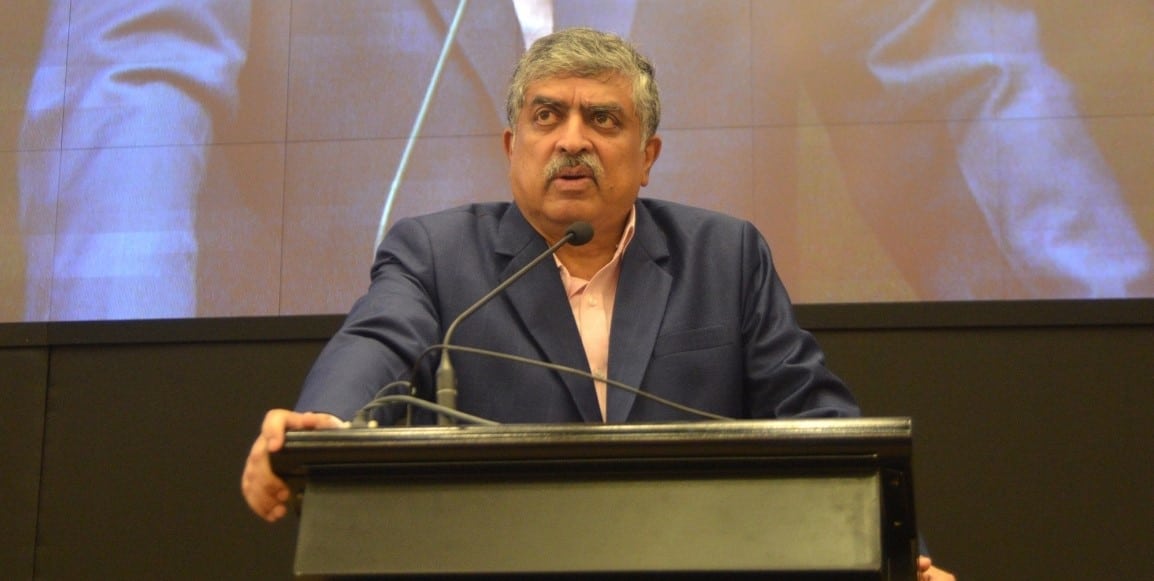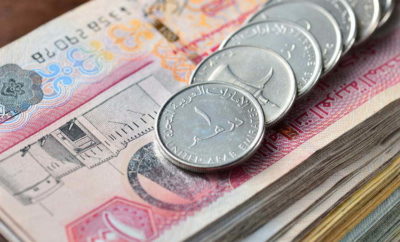Business
Aadhaar Helped Govt Save $9 Billion: Nandan Nilekani

Nandan Nilekani during the 6th CK Prahalad Memorial Lecture 2017 organised by CII in Bengaluru on Aug 8, 2017.
IANS
The unique identity system worked to eliminate fakes and duplicates from beneficiary schemes, Nandan Nilekani said.
India saved $9 billion with help from the Aadhaar Card system that prevented misuse of beneficiary welfare schemes, Nandan Nilekani, the first chairman of the Unique Identification Authority of India (UIDAI), said on Oct. 13.
“By having a unique number, you eliminate fakes and duplicates from your beneficiary and employee lists. That alone has saved the government $9 billion,” Nilekani said at a World Bank panel discussion on “Digital Economy for Development” in Washington.
The UIDAI project, launched by the previous Congress-led UPA government in 2009, was supported by the BJP government under the Prime Ministership of Narendra Modi after coming to power in 2014. Nilekani, the 62-year-old non-executive chairman of technology firm Infosys, steered the Aadhaar system, the world’s largest digital identity number project.
“It has really been a bipartisan thing. I was given a mandate by then Prime Minister Manmohan Singh on how to give everyone in India a unique digital ID. We have 1.18 billion in the system we have built with an architecture that could enroll 1.5 million people a day at 35,000 stations across the country,” Nilekani said.
“We also have half a billion (500 million) people who have connected their (Aadhaar) ID to their bank accounts. The government has transferred about $12 billion to their accounts electronically real time, which is the world’s largest cash transfer system in real-time.”
Nilekani pointed out that India is the only country in the world where a billion people carry out paperless, cashless transactions on their mobile phones using the Aadhaar infrastructure, and added that further lowering of transaction cost would lead to an increase in numbers.
He stressed that the perception of what is digital infrastructure has to change from seeing it as a way to provide communication and internet to the new world of data economy, identity, authentication, frictionless payments and paperless transactions. This is what India has done, he said.
Talking about the Supreme Court ruling upholding individual privacy as a fundamental right, Nilekani added that the apex court also laid down a framework for the government to work around this issue for achieving state objectives of national security, prevention of crime, protection of revenue or for social welfare.
“The Supreme Court, however, said every time you circumscribe some privacies, there has be a certain law, it needs to be reasonable. It’s a brilliantly drafted judgement,” he said. — (With IANS inputs)



